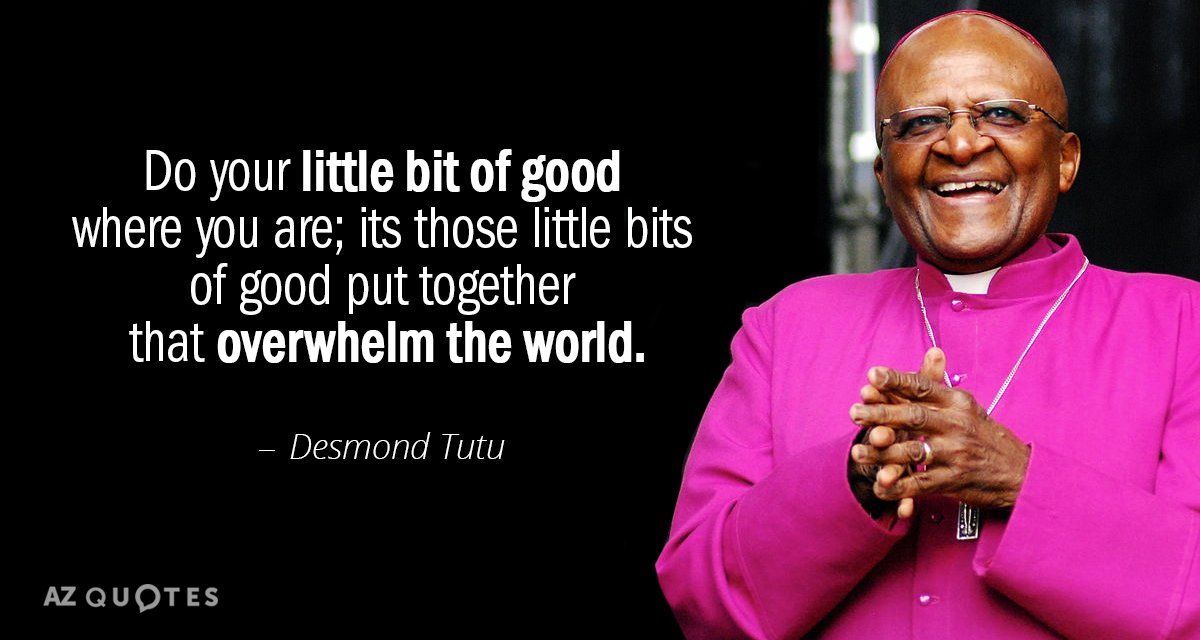In memoriam, Archbishop Desmond Tutu
Of course, I knew Nelson Mandela's name. But he was a shadowy figure, shunted off in a dungeon because of the fear he instilled in the white racist regime, unseen for decades. For me, growing up, Archbishop Desmond Tutu was the face of the liberation struggle. He was the moral center of the calls to dismantle apartheid. Madiba was the Occluded Imam, the Once and Future King, waiting to be released from where he was being held. But Archbishop Tutu was the man I saw almost every day on the television. His words were the ones I read in the newspapers. For many of us, he was the first among equals in the fight.
I asked in a tweet the other day why so many Christians are unlike Christ. And BB responded that they call themselves Christians, but aren't, by their deeds and beliefs. That's something one never needed to ask of Archbishop Tutu. Like Dr. King, the radical message at the heart of Christianity is what motivated him to fight for justice. The idea that God lowered himself to be born into a babe in swaddling clothes was his example. The idea that the world does not belong to the mighty and violent, but to the meek, the low-born. That we are all made in God's image, and all are his children, and not one of us is better than anyone else when we come onto this earth. His Christianity wasn't one of power and prerogatives. His Christianity was one which Jesus would recognize: centering the poor, the downtrodden; ushering in the Kingdom of God on earth—not one of bigotry and hatred, of parochialism and holy wars, but one where all lived in peace, as brothers and sisters.
Many people attach to themselves the idea of their own greatness. They revel in being above others. They see themselves as special and distinct in a sociopathic way. The truly great among us are great for the very fact that they don't do that. They do the work they do because they see the human race as one family. They work this vision of a shared humanity. They would never consider themselves "great". They would never feed their own egos. But it's exactly these people, men and women, who deserve that epithet. In their selflessness, in their loving-kindness, they move mountains which stand immovable before the so-called great and good. As I've written before, they work to restore the world's unity, the broken Shekinah. Archbishop Desmond Tutu would have never called himself. But with his passing, a great soul has gone to his reward. May we work to honor his memory.
